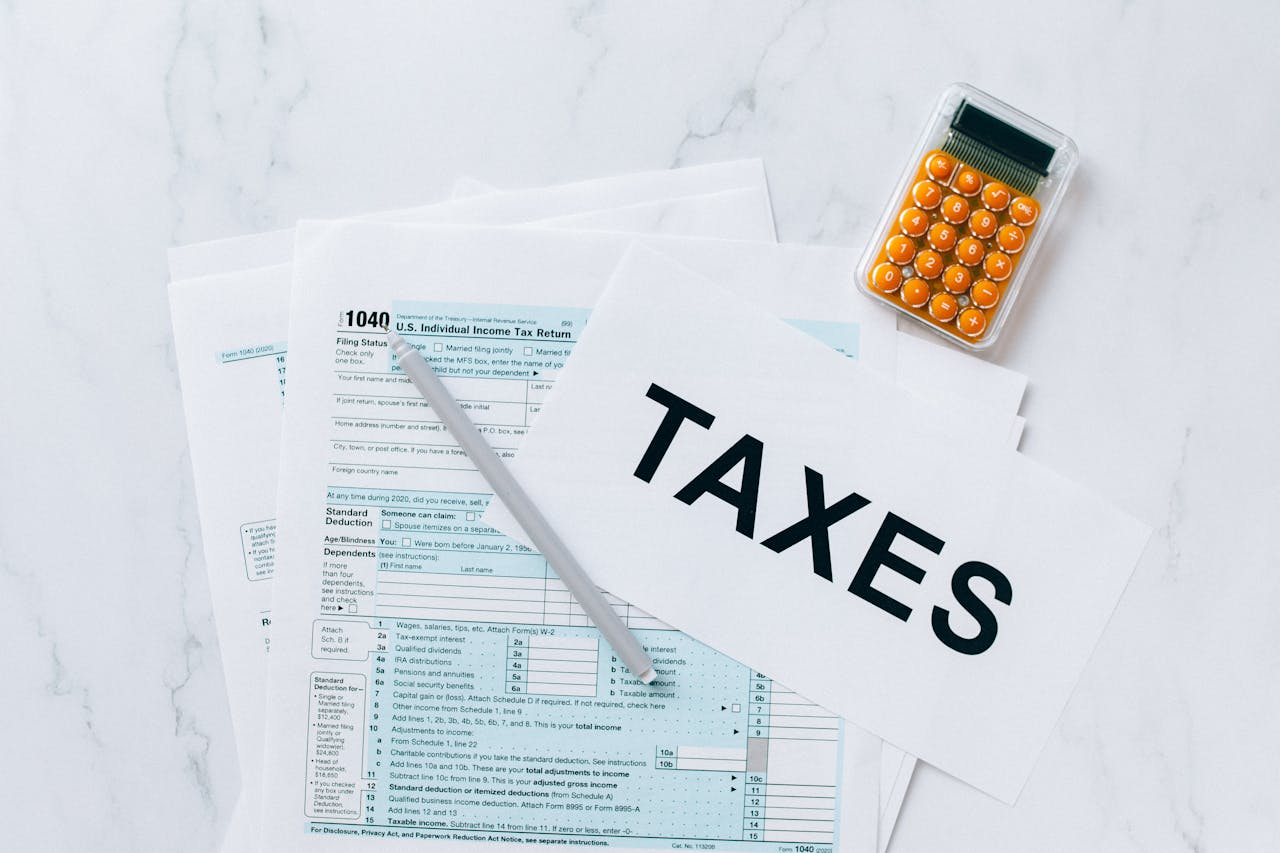Winter Park, located in the heart of Colorado, is well-known for its charming mountain town feel, lush landscapes, and vibrant cultural scene. This picturesque town boasts a rich history and a close-knit community atmosphere.
From its renowned ski resorts and outdoor adventure activities to its cozy dining and shopping options, Winter Park provides a unique blend of small-town charm and metropolitan convenience. The town’s beautiful parks and scenic mountains offer abundant opportunities for outdoor recreation, making it an attractive destination for both residents and visitors.
Understanding the tax advantages of owning property in Winter Park is crucial for prospective buyers and investors. These benefits can significantly impact the overall cost of property ownership, enhancing the financial appeal of investing in this desirable location.
Whether you’re looking to reduce your monthly mortgage payment or want to be part of the lucky rental property owners who take advantage of multiple tax benefits, this article is for you.
Tax savings can come in various forms, including deductions on mortgage interest and property taxes, potential depreciation benefits for rental properties, and favorable capital gains treatment upon the sale of property. Armed with knowledge about these advantages, property owners can make informed decisions that maximize their investment’s profitability and sustainability.
Basic Tax Concepts

Understanding the tax advantages of owning property in Winter Park begins with grasping a few basic tax concepts. When you own property, you are subject to property taxes, which are imposed by local governments and are usually based on the assessed value of the property.
Moreover, property ownership can have implications for your federal income taxes, potentially offering tax benefits that can make owning property more advantageous.
Real estate taxes are annual fees that property owners must pay to local governments, and they are typically assessed on real estate such as land and buildings.
Colorado tax deductions-related information is crucial since it allows you to understand what you must pay and how to handle everything about the process.
The amount of property tax owed is generally determined by the assessed value of the property, which is conducted periodically by a local tax assessor. These taxes often fund essential public services such as schools, road maintenance, and emergency services.
When it comes to federal income taxes, owning property can offer several deductions that may reduce your taxable income. Mortgage interest and property taxes are among the most significant deductions available to property owners.
Additionally, expenses related to the maintenance and improvement of a rental property can also be deductible. Furthermore, when you sell your property, you might benefit from capital gains exclusions, which allow you to exclude a certain amount of profit from your taxable income if you meet specific criteria.
State-Specific Tax Considerations
Understanding the tax landscape in Colorado, particularly as it pertains to property ownership, is crucial for homeowners and potential buyers alike. Colorado offers a unique set of tax laws that differ significantly from federal tax implications, creating both opportunities and responsibilities for property owners.
In Colorado, property owners are primarily subject to property taxes, which are levied based on the assessed value of their property.
Each year, county property appraisers determine this value, which is then used to calculate the property tax owed. The average effective property tax rate in Colorado is around 0.55%, which is lower than the national average of 0.99%. This competitive rate makes Colorado an attractive state for homeowners looking to minimize their tax burden while enjoying the benefits of homeownership.
Colorado also imposes capital gains taxes at the federal level on profits made from selling property. While Colorado does not have a state income tax, any profit realized from the sale of property is subject to federal capital gains tax regulations. This distinction is essential for homeowners to consider when planning for the financial implications of selling their property.
Differences from Federal Tax Implications
While Colorado’s state tax laws provide several benefits, they also differ from federal tax implications in notable ways. For instance, federal tax laws allow homeowners to deduct mortgage interest and property taxes on their federal income tax returns.
However, Colorado does not impose a state income tax, which means that residents do not pay state taxes on income earned from their properties, such as rental income. This can be particularly beneficial for property owners who rent out their homes or investment properties.
When it comes to selling property, homeowners must navigate federal capital gains tax rules, which can be complex. If a homeowner sells their primary residence and realizes a profit, they may be eligible for an exclusion of up to $250,000 (or $500,000 for married couples filing jointly) on capital gains if they meet certain conditions.
This federal exclusion can significantly reduce the tax burden associated with selling a home, but it is essential to consult with a tax advisor to understand how these rules apply to individual circumstances.
Property Tax Benefits in Winter Park

Owning property in Winter Park, Colorado, comes with a delightful array of tax benefits that can significantly lighten the financial load for homeowners.
This charming town not only offers picturesque landscapes and a vibrant community but also a favorable tax environment that rewards property owners. Let’s dive into the specifics of the property tax benefits available in Winter Park.
Homestead Exemption Benefits
One of the most appealing features for homeowners in Winter Park is the Colorado Homestead Exemption. This exemption allows eligible homeowners to reduce the taxable value of their primary residence by a certain amount. Imagine the relief of knowing that your property taxes could be significantly lower, thanks to this exemption.
At the same time, the homestead exemption also qualifies your home for assessment limitations. This means that the assessed value of your home can only increase by a maximum of a certain percentage annually, or the rate of inflation, whichever is lower. This protection helps homeowners keep their property taxes manageable over time, ensuring that as property values rise, your tax burden doesn’t spiral out of control.
Additionally, if you decide to move within Colorado, you can “port” your homestead exemption to your new home, allowing you to carry over some of the tax benefits, making it easier to transition without losing your hard-earned savings.
Special Assessments and Exemptions Unique to Winter Park
Winter Park also offers unique local assessments and exemptions that further enhance the financial benefits of homeownership. While specific details on unique assessments were not highlighted, property owners in Winter Park can take advantage of various local programs aimed at reducing property tax liabilities.
For instance, additional exemptions may be available for specific groups, such as senior citizens, veterans, and individuals with disabilities. These targeted exemptions reflect Winter Park’s commitment to supporting its residents and fostering a community where everyone can thrive.
Moreover, understanding the local property tax system is crucial. The median property tax rate in Winter Park is approximately 0.63%, which is lower than the national average. This rate is calculated based on the assessed value of properties, which often benefits from various exemptions, leading to lower actual tax bills for homeowners.
Tax Implications of Property Improvements

In Winter Park, Colorado, property owners must navigate specific tax implications related to property improvements, which can significantly affect their financial planning. Understanding the distinctions between capital improvements and repairs, as well as the depreciation of property improvements, is essential for homeowners in this charming town.
Capital Improvements
In Winter Park, capital improvements refer to enhancements that increase a property’s value, extend its useful life, or adapt it for a different use. These improvements must be capitalized, meaning the costs are added to the property’s basis rather than deducted in the year they are incurred. Examples of capital improvements in Winter Park may include:
- Building a new deck or patio: Enhancing outdoor living space can increase property value.
- Renovating kitchens or bathrooms: Significant upgrades to these areas can attract buyers and boost market appeal.
- Adding energy-efficient windows or insulation: These improvements not only enhance value but can also reduce utility costs.
In Winter Park, where the median home value is around $418,338, making capital improvements can be a strategic investment, especially given the potential appreciation in property value.
Repairs
Conversely, repairs are expenditures made to maintain a property in its current condition without enhancing its value. These costs can be deducted in the year they are incurred, providing immediate tax relief. Common repairs in Winter Park might include:
- Fixing a leaky roof: Essential for maintaining the property’s integrity.
- Repainting walls: Aesthetic updates that do not significantly alter the property’s value.
- Replacing broken appliances: Keeping the home functional and habitable.
Understanding these distinctions is crucial for homeowners in Winter Park to maximize their tax benefits and manage their finances effectively.
Depreciation of Property Improvements
When homeowners in Winter Park make capital improvements, they can depreciate these costs over time. Depreciation allows property owners to recover the cost of improvements through tax deductions spread over the useful life of the asset.
For residential rental properties, the IRS generally allows depreciation over 27.5 years. For example, if a homeowner invests $27,500 in a capital improvement, they can depreciate this cost over 27.5 years, resulting in an annual deduction of approximately $1,000. This deduction can significantly reduce the homeowner’s taxable income, providing a financial incentive to invest in property enhancements.
Tax Strategies for Real Estate Investors

For real estate investors in Winter Park, Colorado, understanding tax strategies can significantly enhance profitability and reduce tax liabilities. Here’s a comprehensive overview of effective strategies to maximize deductions, minimize taxes, and the importance of record-keeping and professional advice.
Strategies to Maximize Deductions and Minimize Taxes
Maximize Deductions
Real estate investors should take full advantage of available deductions to reduce their taxable income. Common deductions in Winter Park include:
- Mortgage Interest: Interest paid on loans for investment properties can be deducted.
- Property Taxes: Investors can deduct property taxes paid on their rental properties.
- Depreciation: Investors can depreciate the value of their rental properties over 27.5 years for residential properties. This includes capital improvements, allowing for deductions on significant renovations or upgrades.
- Operating Expenses: Costs related to property management, maintenance, repairs, and utilities can be deducted, reducing overall taxable income.
Utilize 1031 Exchanges
This powerful tax-deferral strategy allows investors to sell one investment property and purchase another without incurring immediate capital gains taxes.
By reinvesting profits into a like-kind property, investors can defer taxes and potentially grow their real estate portfolio more efficiently.
Leverage Tax Incentives
Colorado offers various tax incentives for property owners, including potential exemptions for certain types of properties. Investors should stay informed about local incentives that may apply to their investments in Winter Park.
Year-End Tax Planning Strategies
As the year comes to a close, real estate investors in Winter Park should engage in proactive tax planning:
- Review Financials: Conduct a thorough review of income and expenses to identify any additional deductions that can be taken before year-end.
- Consider Timing for Sales: If planning to sell a property, consider the timing of the sale to optimize tax implications. Holding a property for over a year can qualify for long-term capital gains rates, which are generally lower than short-term rates.
- Prepay Expenses: If cash flow allows, consider prepaying certain expenses (like property taxes or insurance) to maximize deductions for the current tax year.
Importance of Record-Keeping
Effective record-keeping is vital for real estate investors in Winter Park. Accurate records help ensure that all deductions are substantiated, making it easier to prepare tax returns and defend against potential audits. Key records to maintain include:
- Receipts for Repairs and Improvements: Documenting all expenses related to property maintenance and improvements is crucial for maximizing deductions.
- Rental Income Records: Keep detailed records of all rental income received, including any deposits or fees.
- Property Management Documentation: Records related to property management services, including contracts and invoices, can provide additional deductions.
Importance of Professional Advice
Navigating the complexities of real estate taxation can be challenging, especially with the unique regulations in Colorado. Engaging a tax professional or accountant with expertise in real estate can provide invaluable guidance. They can help:
- Identify Tax Strategies: A professional can tailor tax strategies to individual circumstances, ensuring that all potential deductions and credits are utilized.
- Stay Compliant: Tax laws can change frequently. A knowledgeable advisor can help investors stay compliant with current regulations and avoid costly mistakes.
- Optimize Tax Position: Professionals can assist in long-term tax planning, helping investors make informed decisions that align with their financial goals.
Conclusion
In conclusion, property ownership in Winter Park, Colorado, offers a wealth of tax advantages that can significantly enhance the financial well-being of homeowners and real estate investors alike. Key tax benefits discussed include the Homestead Exemption, which reduces the taxable value of primary residences, and the ability to deduct mortgage interest and property taxes.
Additionally, understanding the distinctions between capital improvements and repairs allows property owners to maximize deductions while effectively managing their tax liabilities.
For real estate investors, leveraging strategies such as depreciation, 1031 exchanges, and local tax incentives can further optimize financial outcomes. Engaging in proactive year-end tax planning and maintaining meticulous records are essential practices that can lead to substantial savings.
When you own a home, you have to pay fees. Colorado homestead exemption options, however, allow you to take advantage of all the options that Colorado property taxes offer.
Many Colorado homeowners are not aware of the different things they can do to ensure income tax deduction since real estate property taxes are so hard to understand.
Ultimately, the importance of leveraging these tax benefits cannot be overstated. By taking full advantage of the available tax strategies, property owners in Winter Park can not only enhance their investment returns but also ensure a more secure financial future.
Embracing these opportunities allows homeowners and investors to thrive in a vibrant community while making their property ownership experience both rewarding and financially advantageous.








